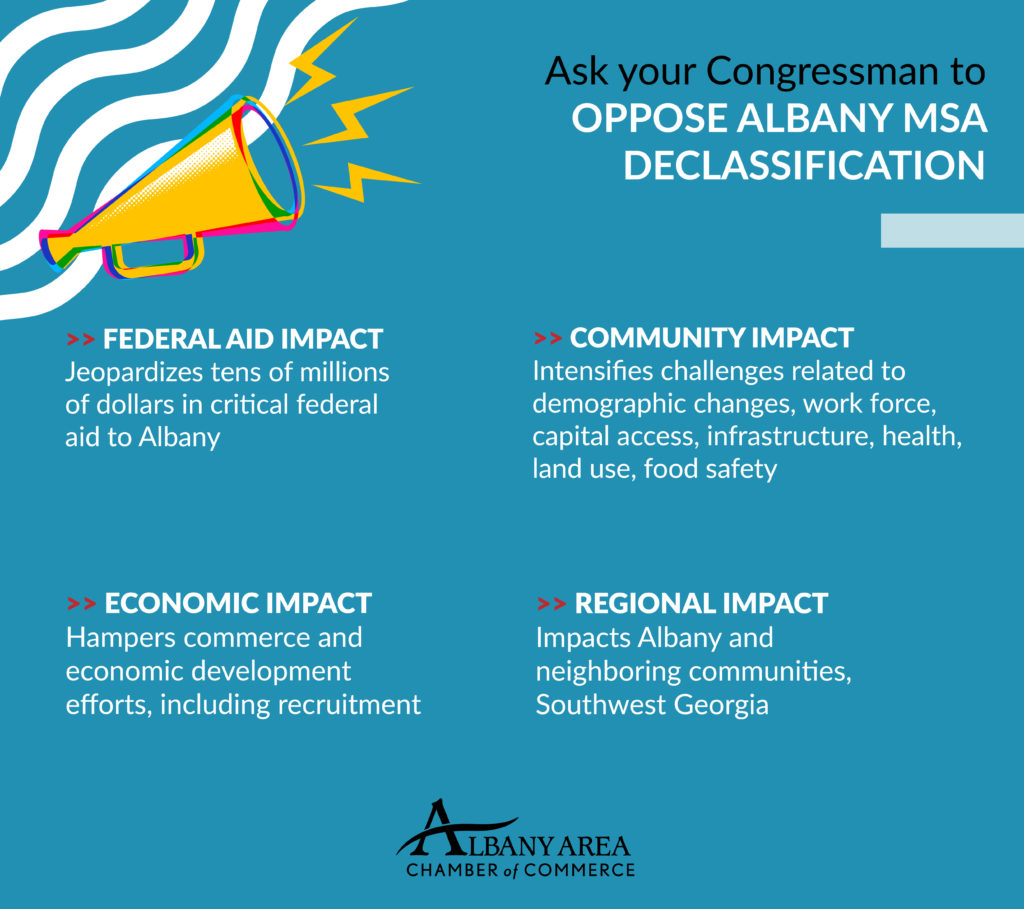The Albany Area Chamber of Commerce opposes the recommendation from the Metropolitan and Micropolitan Statistical Area Standards Review Committee to the Office of Management and Budget (OMB) to raise the minimum population by which cities qualify as Metropolitan Statistical Areas (MSA). Raising the MSA minimum population from 50,000 to 100,000 people would divert much needed federal funding away from Albany, Georgia, one of the communities hit hardest by the pandemic; Albany was a COVID-19 global hot spot. At a time when we need federal aid and support most, the loss of MSA status and associated funding would threaten our sustainable economic recovery; remove our ability to provide input into regional and state level infrastructure planning; widen the chronic transportation funding gaps that exist; and hamper community and economic development.
“The Albany Area Chamber opposes raising the minimum population by which cities qualify as Metropolitan Statistical Areas. The proposed change would be of significant negative impact to Albany and the Albany Area, threatening economic development efforts, regional infrastructure improvements and needed federal aid,” said Barbara Rivera Holmes, president and CEO of the Albany Area Chamber of Commerce, the region’s largest business advocacy organization. “Albany has made incredible strides as a community, and through vision and action has positioned itself as a statewide leader in collaborative partnerships, resiliency and innovation. As we collectively work on economic recovery, it is particularly important to nurture pro-growth policies for businesses, families and communities like Albany. “
Although raising the minimum MSA population cutoff from 50,000 to 100,000may be billed by OMBas a purely statistical exercise, there are many federal programs that utilize the MSA statistical designations to determine which cities are eligible for federal funding. OMB identified more than 140 cities in almost every state that would lose federal funding if the MSA population cutoff is raised to 100,000. This is especially impactful for Albany— arural Georgia hub community disqualified from “rural” status benefits and incentives; the loss of MSA status would be a double hit. Making this change would stop the flow of critically-needed federal aid that supports Albany as the economic driver of Southwest Georgia, a rural region that already faces challenges related to demographic changes, workforce development, capital access, infrastructure, health, land use and food safety.It should be noted that since 2017, Albany has withstood not just a pandemic, but also four federally-declared natural disasters.
Chamber and community leadership have jointly expressed their opposition to the change to the area’s Congressional delegation and OMB.
Ask your legislators to OPPOSE the OMB recommendation. Click here to find your Congressman.
